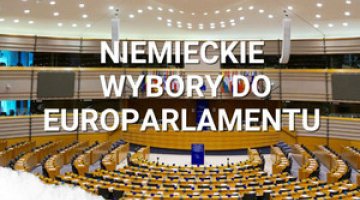Chinese consultations in Germany and France: economic cooperation despite differences
The Prime Minister of China and a delegation of nine members of the State Council visited Germany on 18–21 June. The main reason for the visit was the 7th Sino-German ‘Joint Action for Sustainable Development’ intergovernmental consultations. On 19 June, Prime Minister Li Qiang met President Frank-Walter Steinmeier and then, together with representatives of the Chinese delegation, was hosted by Chancellor Olaf Scholz (SPD) at a dinner at the Chancellor’s Office. Li Qiang also took part in several meetings with representatives of German companies (including Siemens, Volkswagen, BMW, BASF, Merck, SAP and Allianz) and participated in the 11th Sino-German Technology and Economic Forum. The delegation was also received by the Prime Minister of Bavaria, Markus Söder, and met representatives of Bavarian companies; they visited the headquarters of BMW and Siemens amongst other places. Unlike Scholz’s visit to Beijing last year (see ‘Cooperation in spite of everything. Scholtz’s visit to China’), the German media have not commented widely on the intergovernmental consultations.
During the Chinese delegation’s visit, the chancellor strongly emphasised that Germany did not plan to separate itself economically from China, but rather intended to develop “balanced partnerships throughout Asia”. Numerous documents were also signed: a declaration of intent to create a mechanism for dialogue and cooperation on climate change and green transformation, an agreement on electric and hydrogen mobility, and a three-year plan for action between the German Federal Ministry for Economic Cooperation & Development and the Chinese Development Agency. Letters of intent were also reportedly signed by representatives of the Chinese government and those of Mercedes, Volkswagen, BMW and Siemens.
Even though the visit was focused on economic issues, officially global affairs were the main topic of the consultations. Scholz mentioned social problems, the pandemic and climate change & their consequences as being the greatest contemporary challenges for China and Germany. The Chancellor again appealed to Beijing to influence Russia and to refrain from supplying weapons to Russia during the war in Ukraine. He also stressed once again that a potential peace agreement to end this armed conflict must be based on “international law and the sovereign decision of Ukraine”.
Prime Minister Li Qiang travelled directly from Germany to France on 21 June, and again focused mainly on economic issues. During a working lunch attended by the French minister of the economy and finance Bruno Le Maire and the CEOs of leading local companies, Li came up with a proposal to intensify economic cooperation between the two countries, and praised Paris for opposing the development of an international system based on the confrontation of two blocs and the idea of decoupling. Le Maire expressed his wish to attract more Chinese investors to France, especially those developing green technologies. On 22 June, Li Qiang participated in the Summit for a New Global Financing Pact hosted by French President Emmanuel Macron. The summit was aimed at encouraging industrialised countries, including China, to offer more generous support to developing countries in their effort to implement the green transition. In his speech, PM Li Qiang insisted that China’s development did not pose a threat to anyone, and during his meeting with French Prime Minister Élisabeth Borne he called on Paris to pursue an independent policy. Li and Macron had the opportunity to talk face to face during a dinner on 22 June when, the Elysée Palace revealed, they discussed the situation in Ukraine and around Taiwan.
Commentary
- The visit showed that, despite the two sides’ increasing differences and tensions, Berlin wants to continue the best possible trade relations with Beijing. China is Germany’s largest trade partner (in 2022, the trade volume reached €298 billion) and exporter (its exports to Germany are worth €191 billion; for comparison, German exports to China reached €106 billion, which gives it fourth place). Scholz left Li Qiang in no doubt that Germany has no intention of radically scaling down its trade relations with China. The chancellor said the problematic issues in bilateral relations were merely ‘challenges’, and insisted that those projects that Beijing perceives as sensitive are not aimed against China. These include legislation on the control of supply chains, working conditions and respect for human rights, as well as access and equal competition rules for foreign companies operating on the Chinese market. Concerns about Germany’s high economic dependence on China, especially in the automotive sector, were downplayed (see ‘A dangerous resemblance. Moves to revise Germany’s China policy’); this was evidenced by the signing of letters of intent with key German car companies during the visit.
- It is also symbolic that there are plans for closer technological cooperation, despite warnings from the German secret services regarding Chinese economic espionage and the use of dual-use technologies that do not comply with the previous agreements. This is all the more significant because, according to media reports, the federal government is considering banning the use of certain Chinese-made components in the expansion of the 5G network. At the same time, German business is questioning how attractive the Chinese market still is. This is due to China’s uncertain prospects for economic growth (GDP increased by 3% in 2022, but in the first quarter of this year it had already reached 4.5%), concerns about new counterintelligence regulations, giving Chinese security services access to foreign companies’ confidential information, and the problems Western entities have had with entering and operating on the Chinese market.
- From Berlin’s perspective, it is crucial to gain the support of China (the world’s largest emitter of CO2) and enhance cooperation with it on counteracting climate change in order to reach the necessary compromises in international forums dedicated to climate protection, especially UN climate summits. That is why the declaration of intent to create a mechanism for dialogue and cooperation in the field of climate change and green transformation includes sections on limiting the increase in the average global temperature to a maximum of 1.5°C by mid-century, which will be presented as a negotiating success for Germany. The announcement of closer cooperation within specific sectors of industry and with local governments in the process of decarbonisation, especially in industry, will be treated in the same way.
- The Chinese visit demonstrated that the Social Democrats are prevailing in the dispute over Germany’s policy towards China between the SPD and its coalition partners from the Green Party and the FDP. The Chancellor’s rhetoric and the brief mention of Beijing in Germany’s national security strategy may indicate that its new policy towards China will be much milder than what the ministries of economy and foreign affairs (controlled by the Greens) have been demanding. Berlin’s position is also in line with the conclusions resulting from Antony Blinken’s recent visit to Beijing, which suggest that the US wants the West to maintain internal cohesion, and will not put too much pressure on the EU if it is not ready for a tougher policy towards China. Since Washington – Berlin’s only partner who could realistically change its approach towards China – is not putting any pressure on it, the German government will not take steps that could unnecessarily antagonise its relations with its largest trading partner.
- The fact that the new Chinese prime minister chose Germany and France for his first foreign trip indicates that China sees its relations with both of them as basic tools to influence the EU’s position on global issues. Beijing hopes that it will be able to use Germany’s economic ties with China (especially the political influence of big business) and France’s political ambitions to disrupt the political and economic coordination of the EU and the US in their approach to China. This is why while in Germany Prime Minister Li Qiang repeatedly stressed the need to maintain economic interdependence as the basis for globalisation, and the leitmotif of his speeches in France was strategic autonomy, which Beijing’s interpretation reduces to opposing Washington’s leadership. It was no coincidence that Blinken’s visit to Beijing was set for the time when PM Li Qiang was flying to Europe. In this way, China wanted to show its European partners that it is a responsible participant in international relations and remains open to diplomatic activity. Given the difficult economic situation in China, and in the face of increasingly strained international relations, Beijing is hoping for a more extensive inflow of foreign investments from Europe (especially Germany), which shrank during the pandemic.





